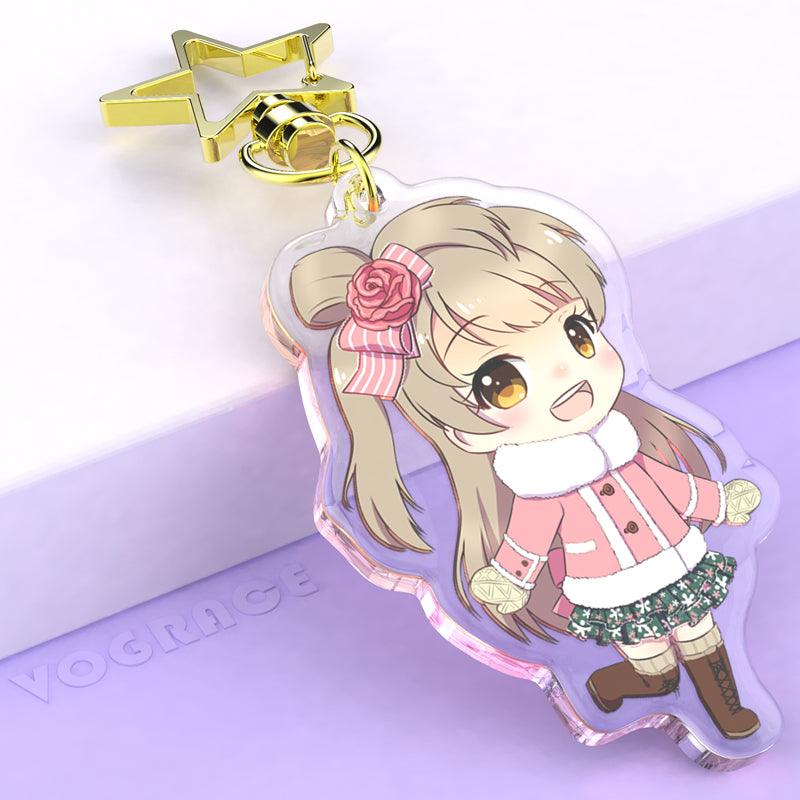In the world of custom-made keychains, size truly matters. Whether you’re crafting a personalized keychain for yourself or designing one as a promotional item for your business, selecting the right dimensions is crucial. The size of your keychain can affect its functionality, visual appeal, and overall impact. In this comprehensive guide, we’ll explore everything you need to know about choosing the perfect dimensions for your customized keychains design.
Understanding Keychain Dimensions
Before diving into specific size recommendations, let’s first understand the typical dimensions of a keychain. A standard keychain usually ranges from 2 to 3 inches in length, with a width of around 1 inch. However, custom keychains can vary widely in size, depending on their design and intended use.
Factors to Consider
1. Functionality: Consider how the keychain will be used. Will it hold just a few keys, or do you need it to accommodate more? The size should be practical for everyday use, allowing easy access to keys without being too bulky or cumbersome.
2. Design Elements: The size of your keychain should complement its design elements. If you’re incorporating intricate details or logos, ensure that they’re visible and legible at the chosen dimensions. A keychain that’s too small might compromise the clarity of the design.
3. Portability: Keychains are meant to be portable accessories, so size matters when it comes to convenience. Opt for dimensions that fit comfortably in pockets or bags, making them easy to carry around without adding unnecessary bulk.
4. Brand Representation: If you’re creating custom keychains for promotional purposes, consider how the size reflects your brand. A larger keychain might offer more visibility for your logo or message, while a smaller one could be more discreet and practical for daily use.
Recommended Sizes
While there’s no one-size-fits-all solution, here are some recommended dimensions based on common keychain styles:
1. Standard Keychain: For a traditional keychain design, aim for dimensions of approximately 2 to 3 inches in length and 1 inch in width. This size strikes a balance between functionality and aesthetics, suitable for most everyday uses.
2. Mini Keychain: If you prefer a more compact option, consider a mini keychain with dimensions ranging from 1 to 2 inches in length. These are ideal for minimalist designs or when space is limited.
3. Large Keychain: For promotional or decorative purposes, larger keychains ranging from 3 to 4 inches in length can offer more visibility for branding or custom artwork. However, be mindful of not making them too bulky for practical use.
4. Custom Shapes: If you’re opting for a unique shape or custom design, dimensions will vary based on the specific requirements. Ensure that the size is proportional to the shape and that it remains functional as a keychain.
Testing and Feedback
Once you’ve finalized the dimensions for your custom keychain design, it’s essential to test prototypes and gather feedback. Solicit opinions from potential users or customers to ensure that the size meets their expectations in terms of functionality and visual appeal.
Conclusion
Choosing the right dimensions for your customized keychain design is a crucial step in creating a product that resonates with your audience. By considering factors such as functionality, design elements, portability, and brand representation, you can select dimensions that strike the perfect balance between practicality and aesthetics. Whether you opt for a standard size, mini keychain, large promotional keychain, or custom shape, remember that size matters when it comes to making a lasting impression.
In summary, let your keychain’s dimensions speak volumes about your style, brand, and attention to detail. With the right size, your custom keychain will not only hold your keys but also become a cherished accessory that makes a statement wherever you go.



